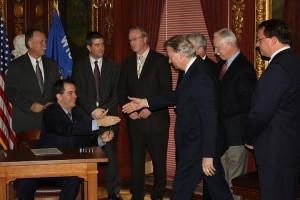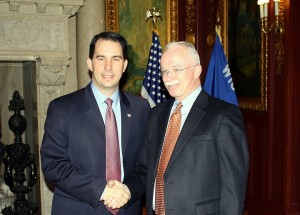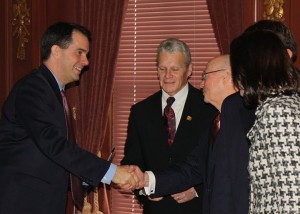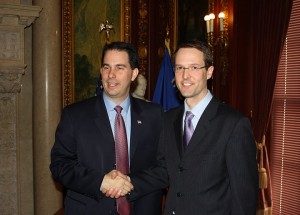Justice David Prosser took a considerably larger lead Thursday evening when Waukesha County Clerk Kathy Nickolaus announced that her original report to the Associated Press on election night did not include numbers from the City of Brookfield. As a result, Justice Prosser took a roughly 7,500 vote lead.
For more information, here are articles from the Milwaukee Journal Sentinel and Wisconsin State Journal.




